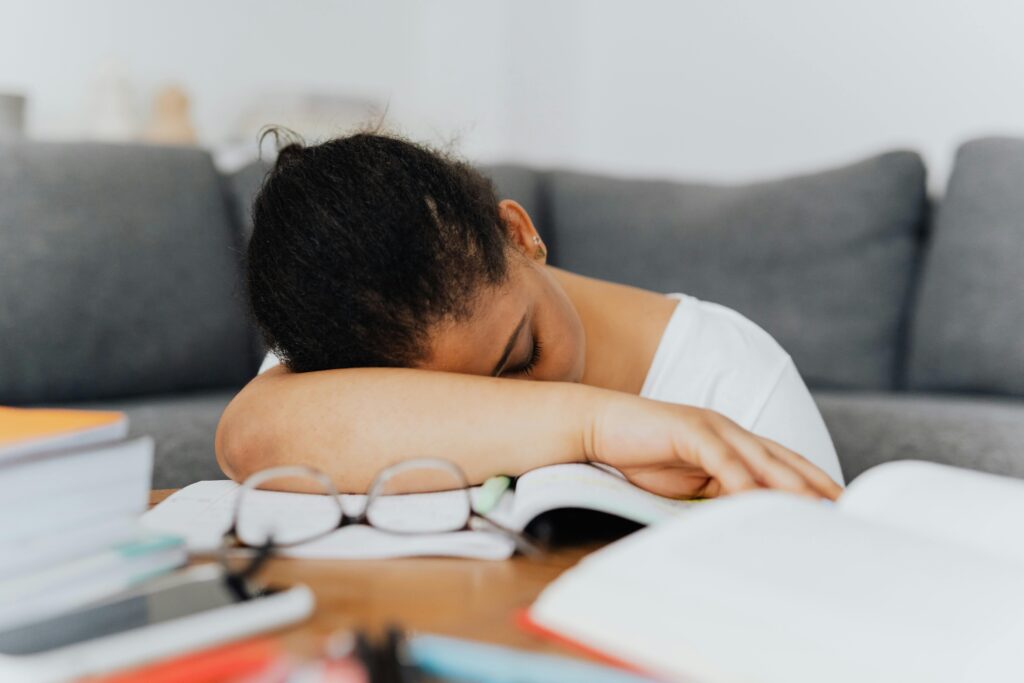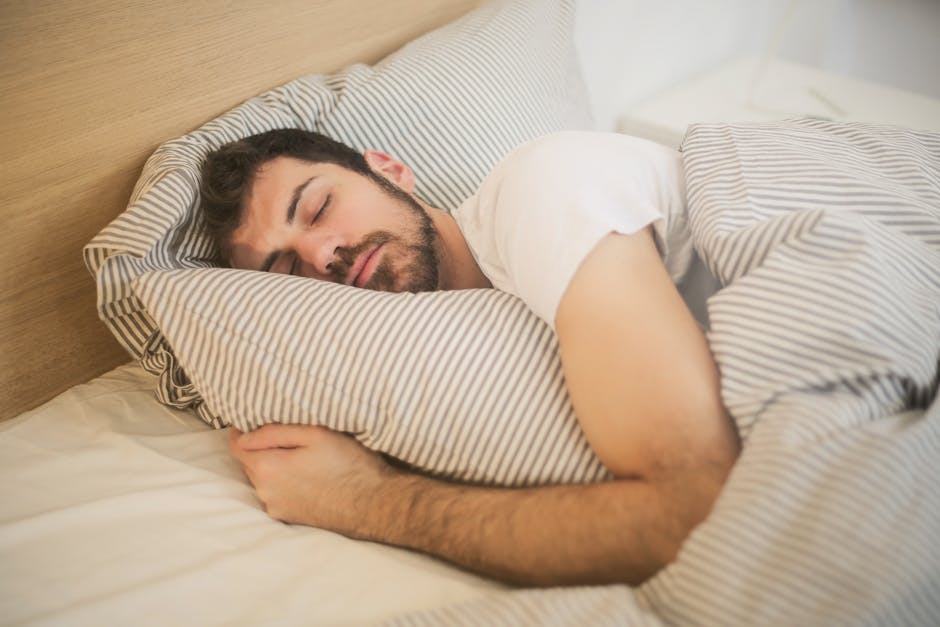Building Healthy Sleep Habits: A Lifelong Gift for Teens
“Sleep is the golden chain that ties health and our bodies together.”
– Thomas Dekker
Why Sleep Matters for Teens
Teenagers need 8–10 hours of sleep each night to perform at their best, yet over 70% of high school students don’t get enough. Sleep isn’t just about rest—it’s a crucial pillar of health that supports both body and mind.
Sleep impacts every part of your life: mental, physical, and emotional. It boosts mood, sharpens focus, and fuels energy. Imagine waking up feeling refreshed and ready to conquer the day—it’s like having a secret superpower. Studies show quality sleep enhances learning, memory, and creativity, giving you an edge in school, sports, and everything else you’re passionate about. Research from the University of Rochester reveals that sleep strengthens the brain’s ability to consolidate memories, turning fleeting information into lasting knowledge.
On the physical side, sleep promotes growth, repairs muscles, and strengthens the immune system. It’s vital for your body’s repair processes, with growth hormones released during deep sleep. Lack of sleep can lead to long-term health problems like obesity, diabetes, and heart disease. A study from the Journal of Clinical Sleep Medicine links insufficient sleep to higher obesity rates in teens, as it disrupts hunger-regulating hormones. Building healthy sleep habits today lays the foundation for a healthier future.
The Effects of Sleep Deprivation
Mental Health
Lack of sleep is a major risk factor for anxiety, depression, and mood swings. Teens getting fewer than six hours of sleep per night are three times more likely to experience depressive symptoms. In fact, studies show that sleep deprivation worsens emotional regulation, creating a vicious cycle. A National Sleep Foundation report shows insufficient sleep increases emotional instability, affecting relationships and overall well-being. The American Psychological Association found that teens who get enough sleep are less likely to feel isolated and lonely.
Academic Performance
Sleep deprivation dulls focus, impairs memory, and slows down learning. Teens who sleep well perform better academically. A study in Sleep Health Journal found that students sleeping 9 hours per night had higher GPAs compared to those sleeping fewer than 6 hours. When you sleep, your brain organizes and consolidates what you’ve learned, strengthening memory and enhancing problem-solving abilities. Sleep is essentially your brain’s way of filing away important information.
Safety Risks
Sleep deprivation is more than just a personal issue—it’s a public safety concern. Drowsy driving causes over 100,000 car crashes each year in the U.S. alone. Teens who sleep less than 7 hours are at a much higher risk of being involved in accidents, according to the CDC. Poor sleep also makes teens more likely to engage in risky behaviors, such as texting while driving or experimenting with substances. A study from Sleep Medicine Reviews found a clear link between sleep deprivation and increased risk-taking behavior in adolescents.
Why Teens Struggle to Sleep
Biological Factors
During adolescence, your sleep-wake cycle shifts naturally, making you more of a night owl. Teens’ internal clocks are delayed by up to 2 hours compared to adults, making early bedtimes difficult. Melatonin, the sleep hormone, starts to release later in the evening during this time. This mismatch with early school start times is a primary reason for sleep deprivation. Research from Chronobiology International and the American Academy of Sleep Medicine suggests later school start times could help align with teens’ natural sleep patterns and improve sleep quality.
Busy Schedules
School, extracurricular activities, part-time jobs, and social obligations keep teens constantly on the go. With 87% of teens feeling stressed about their responsibilities, it’s no wonder sleep often gets sacrificed. According to the National Sleep Foundation, 50% of teens report feeling tired during the day, compromising their focus and ability to perform.
Screen Time
Smartphones and laptops disrupt sleep. Bright screens emit blue light, which delays melatonin production, making it harder to fall asleep. Almost 90% of teens keep devices in their bedrooms, scrolling through social media or gaming late into the night. Studies show that using screens before bed reduces sleep quality, leaving teens feeling groggy the next day. The Journal of Youth and Adolescence found a clear connection between excessive screen time and poor sleep quality.
Building Better Sleep Habits
Stick to a Routine
Consistency is essential. Going to bed and waking up at the same time every day—yes, even on weekends—helps train your body clock. A study from the Sleep Research Society showed that consistent sleep schedules improve sleep quality and daytime alertness.
Create a Relaxing Wind-Down
Having a pre-sleep routine can help signal to your brain that it’s time to wind down. Engage in relaxing activities like reading or journaling, and avoid screens for at least 30 minutes before bed. Research from Behavioral Sleep Medicine indicates that calming activities before sleep can drastically improve sleep quality.
Optimize Your Bedroom
Make your bedroom a sleep-friendly environment. Keep it cool, dark, and quiet, and invest in a comfortable mattress. Studies from the National Sleep Foundation show that a dark and quiet room enhances sleep by minimizing distractions. Consider blackout curtains and white noise machines if necessary.
Limit Caffeine
Avoid caffeine and energy drinks in the afternoon and evening. A study from the Journal of Clinical Sleep Medicine shows that caffeine, especially after 3 PM, can disrupt sleep, making it harder to fall asleep and reducing sleep efficiency.
Manage Screen Time
Put devices away before bed. Charge your phone outside the bedroom and use apps to limit late-night usage. The American Academy of Pediatrics recommends no screen time 30 minutes before bed for better sleep hygiene.
Get Help if Needed
If sleep continues to be a problem, consider seeking help from a healthcare provider. Cognitive-behavioral therapy for insomnia (CBT-I) is an effective treatment for improving sleep quality, especially for those with chronic sleep issues. Studies show that CBT-I is highly successful in helping teens overcome sleep problems.
How Parents Can Help
Set Boundaries
Parents play a key role in helping teens establish healthy sleep routines. By setting boundaries around bedtime and encouraging consistency, parents can promote better sleep habits. Research shows that teens with involved parents tend to have better sleep patterns.
Advocate for Later Start Times
Later school start times have been shown to improve attendance, academic performance, and overall health. Parents can advocate for later start times to ensure their teens are getting the sleep they need. A study in Sleep Health found that delayed start times significantly improved sleep quality and reduced sleep deprivation.
Promote Balance
Help teens prioritize activities to prevent overcommitment. Studies indicate that teens with better time management skills experience less stress and better sleep quality. Teaching teens how to manage their time efficiently frees up more hours for rest.
Conclusion
Sleep is essential for success in all areas of life. By adopting healthy sleep habits, teens can boost their mood, academic performance, and overall well-being. With the support of parents, schools, and communities, quality sleep can transform the way teens live, learn, and grow. Prioritizing sleep now will lay the foundation for a healthier, more successful future.






